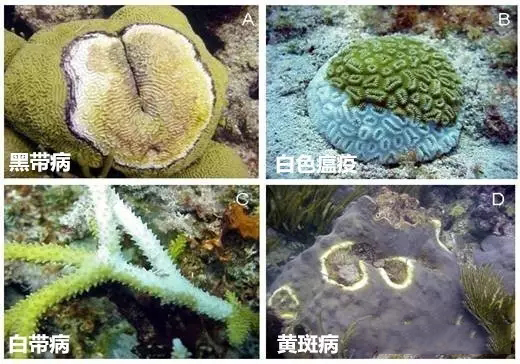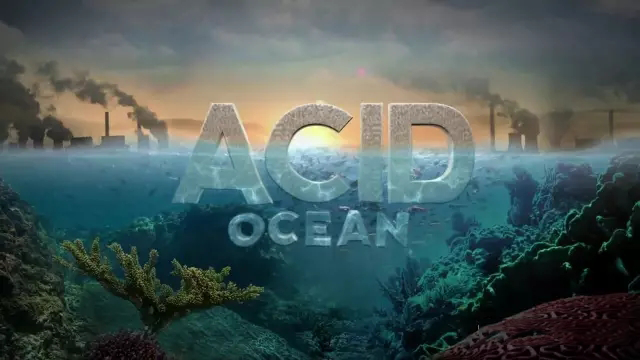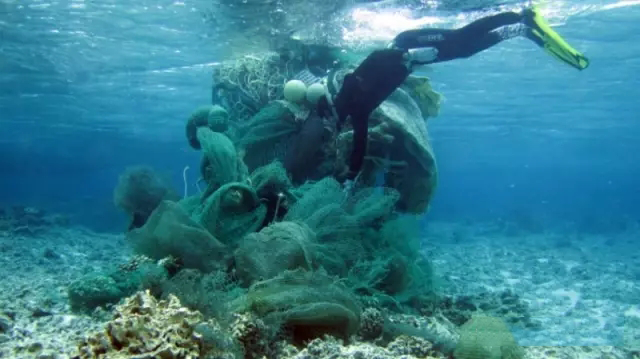Coral reefs are an important part of marine ecosystems, known as "undersea tropical rainforests", and the colorful coral reefs provide living homes for a large number of fish. However, corals also get sick, have natural enemies, are also affected by climate change, and suffer greatly from human activities...

Coral disease
Like people and other animals, corals get sick

Various coral diseases have wreaked havoc on coral reefs worldwide over the past three decades. In the field of coral reefs, coral diseases can usually be divided into black band disease, leucorrhea disease, black spot disease, macular disease, etc. according to some symptoms; according to the pathogens that are the key elements of coral diseases, we more scientifically classify coral diseases as: insect yellow Algal lytic virus disease, bacterial disease, parasitic disease such as ciliate, nutritional metabolism disease, high temperature albinism, etc. Corals have different symptoms when attacked by different pathogens, and the same symptoms can also be caused by different pathogens and other physical and chemical factors of seawater. Once the coral becomes sick, it is usually a local problem first, and then it continues to spread and expand, and finally the colorful coral polyps disappear, leaving only the white coral skeleton......
Sea creatures that eat coral
Coral reefs provide homes for a large number of marine life, some of which feed on corals

Sea stars love coral, they cover the surface of the coral to digest polyps, crown of thorns starfish's food includes most types of coral, can be described as a terrible coral killer. The corals of the Great Barrier Reef were once seriously threatened by starfish flooding. Fish also eat coral. Although coral polyps are protected by hard calcified skeletons and are difficult to ingest, fish can do everything possible to suck corals. Parrotfish, wrasse, butterflyfish and other reef fish will use their unique ways to nibble on coral. Of the more than 6,000 species of reef fish, 128 eat coral. If these sea creatures grow recklessly, it will accelerate the disappearance of corals.
Climate impact
Climate warming, ocean warming, ocean acidification

In recent decades, climate change has received increasing attention. Climate change has caused seawater to warm up, driving away the zooxanthellae symbiotic with corals, causing coral polyps to lose nutrients and die on a large scale. At the same time, seawater absorbs more than 25% of the carbon dioxide emitted by humans, causing seawater acidification. Over hundreds of years, coral polyps secrete calcium carbonate, which precipitates and gradually forms a "rocky" skeleton. Ocean acidification makes it more difficult for coral skeletons composed of calcium carbonate to settle naturally. Increased acidification means they will gradually lose this skeleton. (Imagine osteoporosis in humans.)
Human activity
Inappropriate human activity poses huge threat to coral reefs

Coral reef waters are rich in a large number of marine resources needed by human beings.
Coastal development, deforestation, etc. lead to sedimentation of debris and affect coral growth;
Oil and chemical spills release toxic substances that cause corals to get sick or even die;
Overfishing has led to the depletion of many important species of coral reefs;
Abandoned fishing gear settles in coral reef waters, hindering the growth of coral reefs and their fish;
The development of tourism such as diving may also invisibly cause irreversible damage to corals!
Corals are nature's gift to mankind! Please don't hurt them!